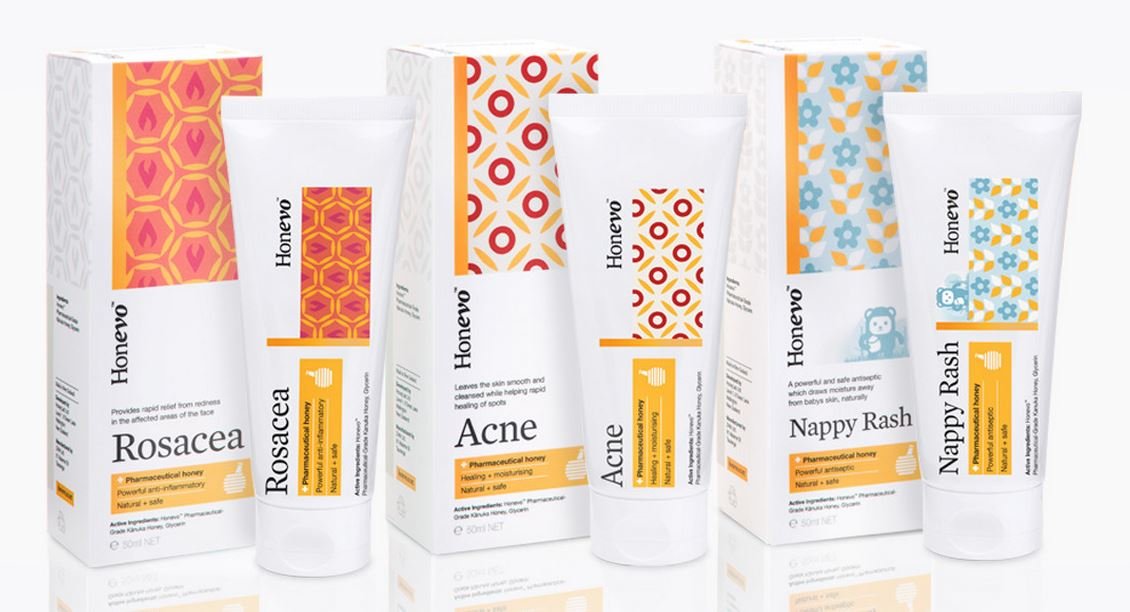
Ongoing clinical trials are proving more and more benefits of the honey, which can only be sourced from New Zealand, for various skin conditions. These trials are led by Shaun Holt, a doctor and professor at Wellington’s Victoria University with an interest in natural medicines.

Image: Shaun Holt led the large-scale clinical trial process for Honeylab’s rosacea treatment and is starting the same process for a cold sore treatment next week.
In 2008 Holt was looking into an Indian honey-based cold sore product, and realised that the natural powers of honey could make it hugely effective in the treatment of a number of skin conditions.
“I wondered why no one else was doing anything with this,” says Holt. “Honey’s just amazing really. It kills all bacteria and is anti-inflammatory, making it perfect as a skin treatment”.
At this point, he began investigating how honey could be purified and stabilized to give it a shelf life and to bring out its medicinal properties.
The initial trials were successful, and Honeylab was borne.
Honeylab’s flagship product – Honevo – is the basis of their treatments that cater for sufferers of rosacea, acne and nappyrash. Next up, the company is undertaking large-scale clinical trials, further testing the effectiveness of Honevo on cold sores.
Shaun was a named finalist for the 2015 New Zealander of the year, for his work as the co-founder and science director of the company. Honeylab is conducting the world’s largest clinical research programme on the medical use of honey and bee products for dermatology, as well as for pain relief.
Honeylab is competing for the 2015 New Zealand Innovators award, with high hopes for their second year of entry.
An extensive trialing process separates Honevo from other pharmaceutical companies. Shaun explained that many pharmaceuticals and pharma-naturals make largely unsubstantiated claims, due to the high costs of clinical trials and fear of poor results.
Honeylab employee Laurence Greig said that the team’s interest in community was a driving force behind the testing process, as well as Shaun’s background in clinical research.
“Shaun is always wanting to ‘poke the lorax’ in terms of evidence”, Laurence said.
Also underway is Honeylab’s work with bee venom. The company has developed a sustainable means of extraction that is utilized for their existing plumping product; Kanu Bee Venom.

Image: Honeylab’s bee venom extraction process
A second product fits into Honeylab’s primary pharmaceutical line, harnessing the natural powers of bee venom for pain relief and to aid joint stiffness.
Honevo products are currently sold exclusively in New Zealand. Honeylab is currently in discussions with a major international pharmaceutical giant, with negotiations to license their product for international sale expected to wrap up later this year.
Professor Holt said the product holds the potential to bring in millions of dollars to New Zealand as an export, and once licensed will be taken out to the rest of the world.
“Kanuka is unique to our country, so we’ll still be bringing the value of the export back to New Zealand”.
Going global, HoneyLab is just one of many entries in this year’s New Zealand Innovation Awards.
If you have an innovation (at any stage of development), ENTER NOW.
Entries close August 4. www.innovators.org.nz




